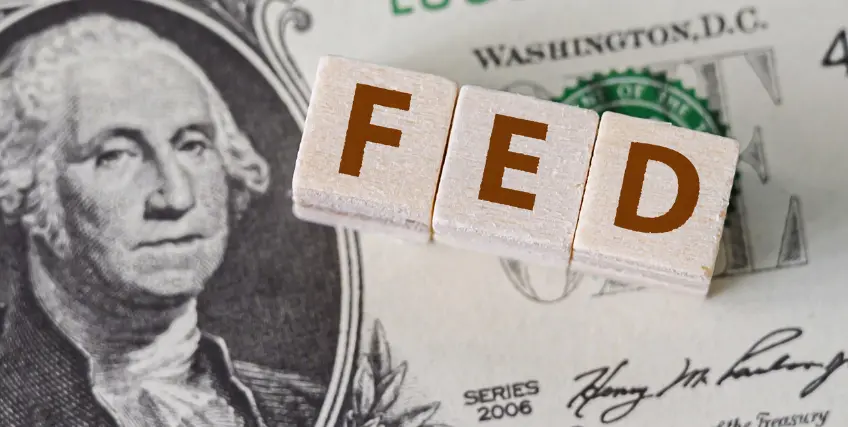Election 2024: What a Harris Presidency Would Mean for Small Businesses
October 17, 2024 | Last Updated on: October 17, 2024

Disclaimer: Information in the Business Financing Blog is provided for general information only, does not constitute financial advice or tax advice, and does not necessarily describe Biz2Credit commercial financing products. In fact, information in the Business Financing Blog often covers financial products that Biz2Credit does not currently offer.
Vice President Kamala Harris has been hard at work promoting her fiscal ideas for small business owners throughout her short-lived presidential campaign in 2024. And even before securing the Democratic nomination, the current second-in-command has been vocal about her advocacy for small business throughout her vice presidency.
In the weeks leading up to the election, she has announced several proposals aimed to help more entrepreneurs get their operations off the ground, and how she plans on adjusting the tax code to be favorable for small businesses.
Here’s what you need to know as a small business owner if Harris wins the presidency in 2024.
A Harris Presidency and How She Aims to Support Small Businesses
The Kamala Harris campaign website has a section dedicated to the small business community, and what she aims to do with her Opportunity Economy agenda. It includes ambitious goals like:
- Grow new business applications to 25 million by the end of her first term
What this means for SMBs: This could potentially represent not only more competitors in your industry, but more people setting out on an entrepreneurial journey, reducing the available workforce to fill open job listings. Small businesses face headwinds finding qualified workers, with 90% of business operators trying to hire reporting few or no qualified applicants for the positions they were trying to fill, according to the NFIB.
- Expand the startup expense tax deduction for new businesses from $5,000 to $50,000, and expand owners’ ability to use the deduction immediately
What this means for SMBs: This could give aspiring entrepreneurs the boost they need to get started. The average business startup costs about $40,000, according to Shopify. However, critics say this doesn’t solve the root issue of early business failure: cash flow. Many early businesses don’t turn a profit in their infancy, and if a business folds before becoming profitable, the deduction won’t be able to be used. But for those that do make it to profitability, it can be a great way to reduce their tax burden.
- Develop a standard tax deduction for small businesses
What this means for SMBs: If you’re already in business, you likely know the headaches of filing business taxes, Harris’ plan could minimize your tax headaches with a standard deduction. This isn’t a new concept as Hillary Clinton proposed this idea during her 2016 presidential campaign. It’s estimated that a small business spends 82 hours and $2,900 per year on tax compliance, according to the Taxpayer Advocate Service.
- Recapitalize the Treasury Department’s small business financing program, the State Small Business Credit Initiative (SSBCI), aimed at entrepreneurs in rural America, middle America, and underserved communities
What this means for SMBs: In a July 2024 report, the SSBCI reported it approved 3,600 businesses for capital funding. 80% of those approved were businesses with less than 10 employees. Harris aims to continue pushing more funding into these programs to ensure small business owners continue getting the funding they may not otherwise be approved for.
You can read more about her small business policy breakdown here (see page 46).
How This Could Impact Your Small Business
If Harris is the winner in the presidential campaign in 2024, business owners could potentially see significant tax changes. For example, the 2017 Tax Cuts and Jobs Act signed during the Trump administration would likely expire without extension at the end of 2025. The TCJA gives business owners the ability to deduct 20% of their costs before their income “passes through” to their individual returns. This has significantly benefitted small business owners, but Democrats have slammed the TCJA as merely a way for business owners to pay less taxes.
Additionally, Vice President Harris has proposed raising the corporate tax rate from the current 21% enacted by the TCJA to 28%. This is a walk back of her 35% proposal during her brief presidential campaign in the last general election. The Harris campaign says this is “a fiscally responsible way to put money back in the pockets of working people.”
If you’re someone looking to start a business, the Harris campaign looks to be bringing some great incentives. However, for someone that is currently operating a profitable business, you could see a higher tax bill if Harris is the 47th President of the United States.
Bottom Line
Some of Vice President Harris’s proposals could have a significant impact on your business operations if she is elected president in 2024. You can read more about the policies she is running with here.
We’re here to give you the facts of the US presidential candidates and their respective small business policies to make the best voting decision for you and your business.
Frequent Searches Leading To This Page
usa election result 2024, usa election result, election usa 2024, election usa




